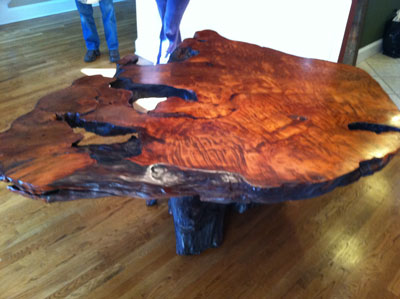I finished June off with an incredible adventure down the west coast in Oregon and California. We took loads of photographs of the huge California redwood trees, so I feel I must share them, while also letting you in on some fun facts about these majestic giants.
We started our road-trip in Portland, Oregon, and headed to the coast right away. As we drove south along the coast, the trees became larger and larger. There were tall trees, wide trees, Siamese trees (the appearance of two trunks growing from one conjoined base), and trees that grew over the road, creating a canopy for the drivers.
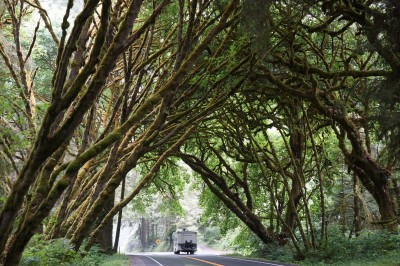
Along the coast, there are lots of state parks with beautiful hiking trails. We took a hike through Jedediah Smith Redwood State Park. The trees were so big, I felt like an ant crawling around a forest. I wonder how many people could fit inside this tree if it were hollow:
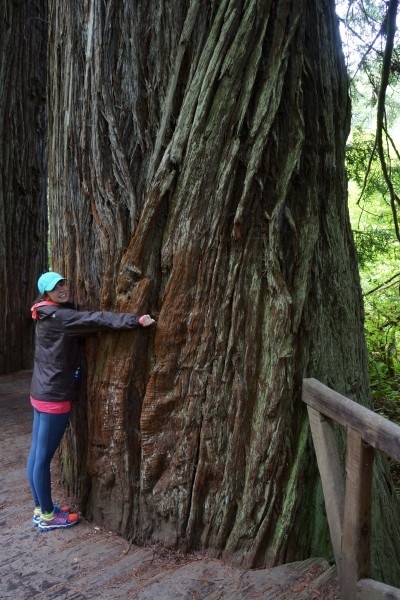
California Redwoods (Latin name: Sequoia Sempervirens) are currently the tallest trees on Earth. They reach up to 115 metres (379 feet), and usually live to be 1200 – 1800 years old (sometimes even older!).
One tree we came across was big enough for our car to drive through it. If you look closely at the sign, you can see that this tree is a whopping 2400 years old!
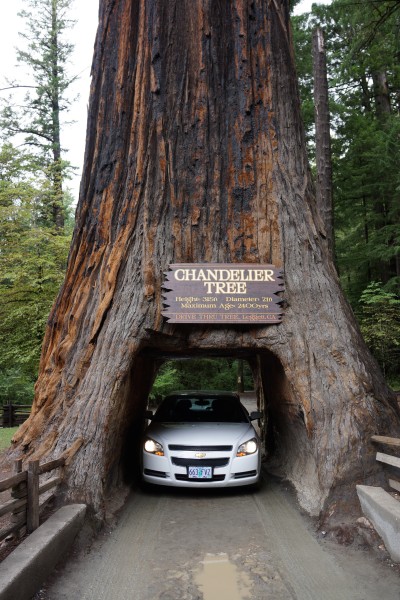
We came across a few banana slugs while hiking. These slow little guys are quite common in California’s forests.
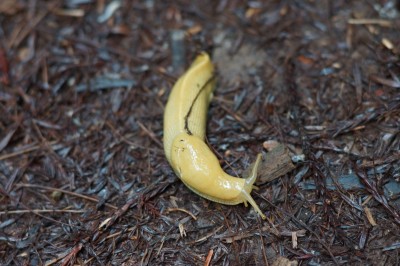
We also found lumps on some of the trees. No, this tree is not oozing some sort of goo. These lumps are called burls, and they are fairly common on Redwood trees. In response to stress (such as an injury or disease) Redwoods will often grow extra layers around the affected areas to protect themselves.
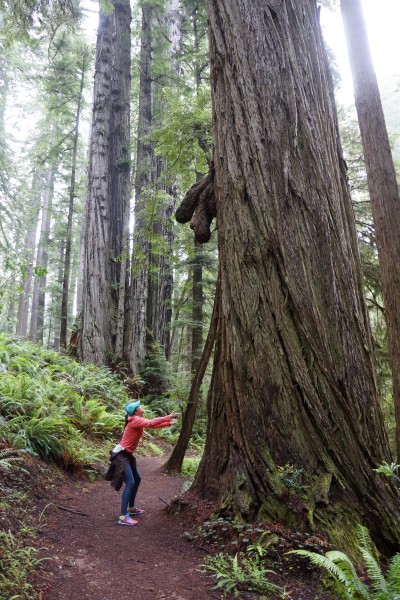
Because of their unique patterns, Redwood burls are often used to make furniture like this table:
And speaking of layers, a Redwood’s bark is really thick, sometimes measuring up to 30 cm. Looking at this Redwood cross-section, you can get an idea of how thick the bark can be:
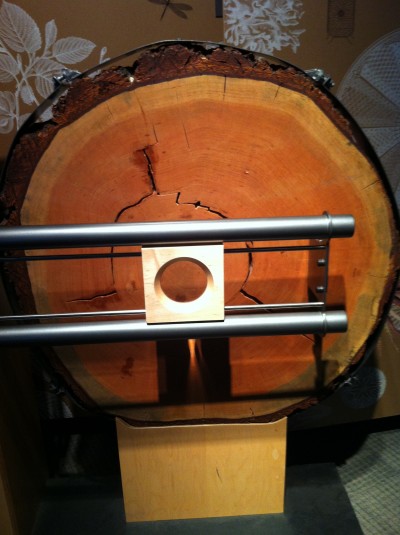
Thanks to their tall stature, Redwood trees are great for zip-lining. We climbed about 75 feet up these trees and then zipped from one to the next.
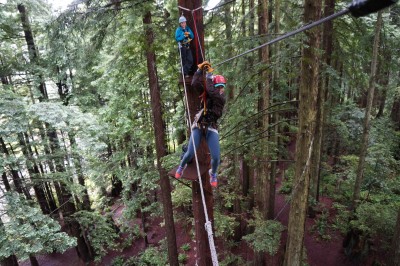
While Redwoods make beautiful forests that are fun to play around in, they are also one of the most valuable species in the forest products industry for their beauty, light weight, and resistance to fire and decay. Foresters calculate many factors in order to find a balance between how many trees are harvested and how many are regenerated to ensure sustainability. Click here to learn about California’s sustainability guidelines for their forests. Or, if you’d rather learn about sustainability here at home (if you are from Alberta), click here to learn about how we make sure our forests will be around forever.
There are incredible trees all over the world. If you read my blog post, Spectacular Trees of Hawaii, you know I’ve been starting to document the exotic trees I find when I travel. I can’t wait to explore the trees in the next place I visit.
